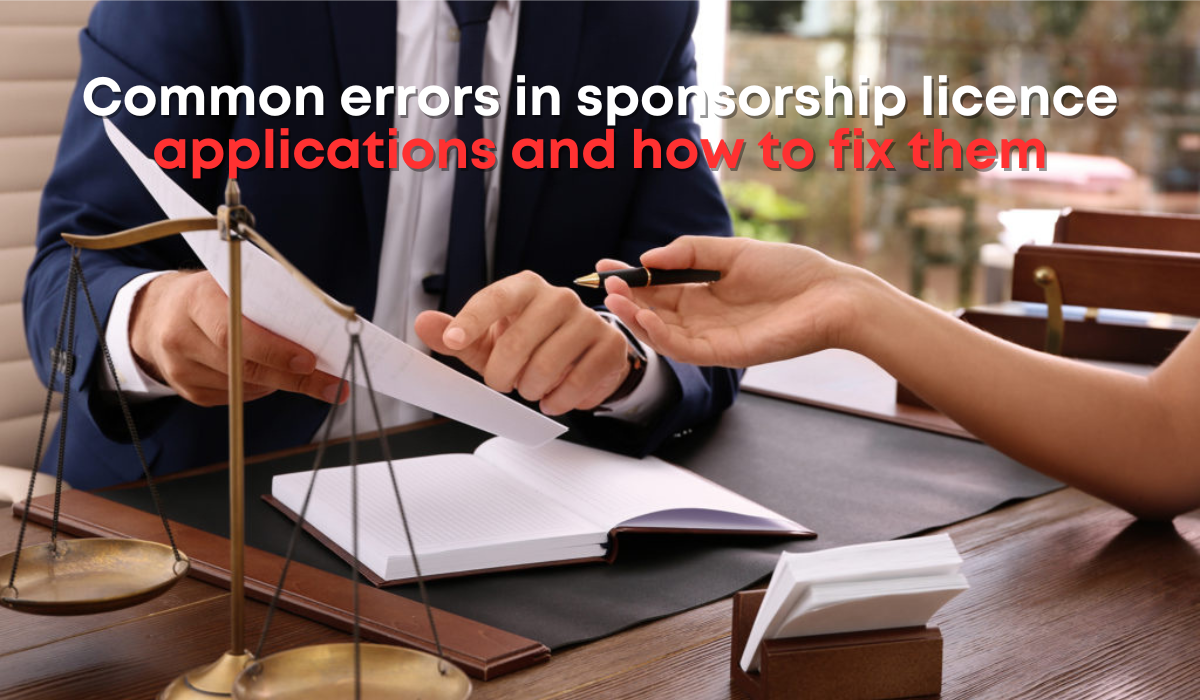UK sponsorship licence application is a vital step for businesses seeking to employ non-UK resident workers. However, many businesses face rejection after applying for a UK sponsor licence due to avoidable mistakes.
Understanding the Importance of a Sponsorship Licence
A sponsorship licence is essential for UK employers who wish to hire EU or non-EU workers on a Skilled Worker visa. This licence is granted by the Home Office and is key to maintaining a competitive edge in today’s fast growing global market. However, obtaining this licence requires meeting strict eligibility requirements and demonstrating the ability to comply with ongoing sponsorship duties.
The Genuineness Test: Proving Your Need
Introduced in April 2015, ‘the genuineness test’ is an important component of the application process. This test evaluates the legitimacy of your need for a sponsorship licence. To pass, businesses must show they have a genuine skilled vacancy, that the role fits within the standard occupation codes, and that the identified candidate will be treated and paid similarly to a local worker in the UK. Failure to effectively demonstrate these points may lead to the rejection of the application.
Avoiding Missing Documents
A common and easily avoidable mistake is submitting an incomplete UK Sponsor Licence application. The Home Office requires specific documents to be provided within five working days of the application. This includes evidence of a genuine role, relevant business operations, and compliance with salary thresholds. From April 2024, these salary requirements have increased, making it even more crucial to ensure all documentation is updated and complete.
Businesses must supply at least four supporting documents, unless they are exempted public bodies or listed companies. Examples include Franchise Agreements for franchises, corporate bank account evidence and VAT registration for start-ups, and affidavits for Tier 2 (Intra-company transfer) sponsors.
Preparing for the Compliance Visit
Every applicant should be prepared for a visit from a Home Office compliance officer. This visit assesses whether the business is legitimate, the HR department is capable of conducting Right to Work checks, tracking and recording sponsored employees, and following all Home Office rules for Tier 2 sponsors. Insufficient preparation for this visit can lead to rejection and hinder future application prospects.
The Role of Key Personnel
Choosing the right support staff is key. Businesses must appoint an Authorising Officer, a Key Contact, and at least one Level 1 User. These individuals manage the Sponsorship Management System (SMS) and ensure compliance with Home Office requirements. They must be of good character, without criminal records, and legitimate employees of the company. Proper training and choosing reliable personnel are essential to maintaining compliance and avoiding application issues.
The Application is Just the Beginning
UK sponsor licence application is not the end but the start of an ongoing compliance process. Licence holders must adhere to all regulations and maintain an A-rating to avoid suspension or revocation. Non-compliance can have severe consequences, including the inability to hire non-EEA workers and the potential loss of current employees on Tier 2 visas.
Handling Rejections and Refusals
Understanding the difference between rejection and refusal is crucial. A rejection means the application was procedurally non-compliant and can be corrected and resubmitted without a cooling-off period. A refusal, however, indicates failure to meet eligibility criteria, often resulting in a mandatory waiting period before reapplying. It is essential to identify and address the specific reasons for refusal and ensure all required documents are included in the reapplication.
Tips for a Successful Application
- Ensure Genuineness: Provide clear evidence of a genuine skilled vacancy and its relevance to your business operations.
- Complete Documentation: Double-check that all required documents are included and current.
- Prepare for Compliance Visits: Implement robust HR systems to demonstrate ongoing compliance with sponsorship duties.
- Appoint Reliable Key Personnel: Select and train staff who are capable of managing the SMS and compliance requirements.
- Continuous Compliance: Maintain compliance with all Home Office regulations to retain a good rating and avoid penalties.
UK sponsor licence application is a complex process fraught with potential pitfalls. By understanding and avoiding common mistakes, businesses can significantly improve their chances of obtaining and retaining their licence. As always, seeking expert advice from an immigration specialist can provide invaluable support throughout the application process.
Get in touch: For a comprehensive understanding of your options or queries on UK immigration matters, contact GigaLegal Solicitors at 02074067654 or click here to book a no-obligation consultation with an immigration expert.


